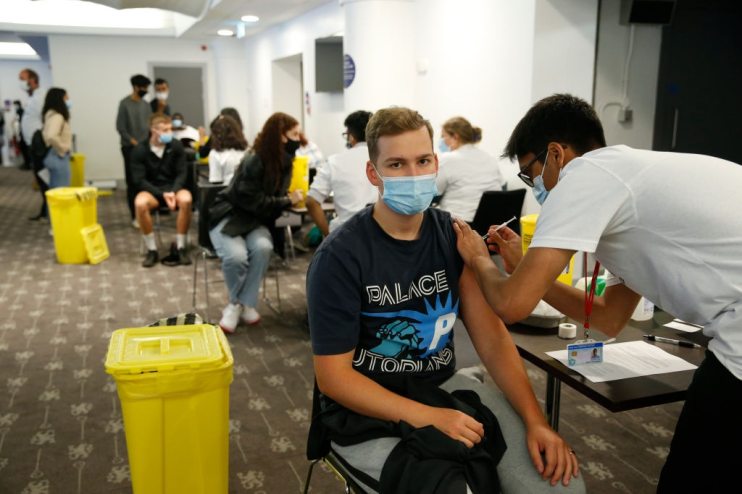It’s working: UK Covid vaccination programme slashes death likelihood

Only 640 of the more than 51,000 people who died of Covid-19 within the first six months of this year were fully vaccinated, according to the latest figures.
The data from the Office for National Statistics (ONS), for the months between 2 January and 2 July, has found that the UK’s immunisation programme is reducing the chances of death for those with two vaccinations.
“The risk of death involving Covid-19 was consistently lower for people who had received two vaccinations compared to one or no vaccination,” the ONS said in the analysis.
It comes as the Mayor of London Sadiq Khan cautioned on Twitter yesterday that nearly 90 per cent of patients with Covid-19 in Northeast London’s ICUs were found be not be fully vaccinated.
He wrote on Twitter: “I urge every eligible Londoner who hasn’t received two vaccine doses to make it a priority. Protect yourself, your community, and our NHS.”
Breakthrough deaths
Deaths that occur from the virus despite having two vaccinations, known as “breakthrough deaths”, while very rare, do still occur.
More than 76 per cent of breakthrough deaths were among those who are classed “clinically extremely vulnerable”, according to ONS, while 13.1 per cent were immunocompromised.
Covid-19 vaccines have been long-hailed as the way out of lockdowns and the pandemic – and they have managed to sever the link between very high case loads and high deaths across the country.
With the success of the UK’s immunisation programme, which prioritised ‘high risk’ individuals, it is expected that there will be an increasing number of vaccinated people dying of the virus, as the number of vaccinated increases.
For example, if 100 per cent of the UK population is vaccinated, then 100 per cent of Covid deaths would be made up of those who are vaccinated.
A PHE spokesperson confirmed to City A.M. last week: “In the context of very high vaccine coverage in the population, even with a highly effective vaccine, it is expected that a large proportion of cases would occur in vaccinated individuals, simply because a larger proportion of the population are vaccinated than unvaccinated.
“This may be even more notable if vaccination has been prioritised to individuals who are more susceptible or more at risk of severe disease.
“This is the case with the UK vaccination programme, in particular when looking at severe disease outcomes such as hospitalisations or deaths.”